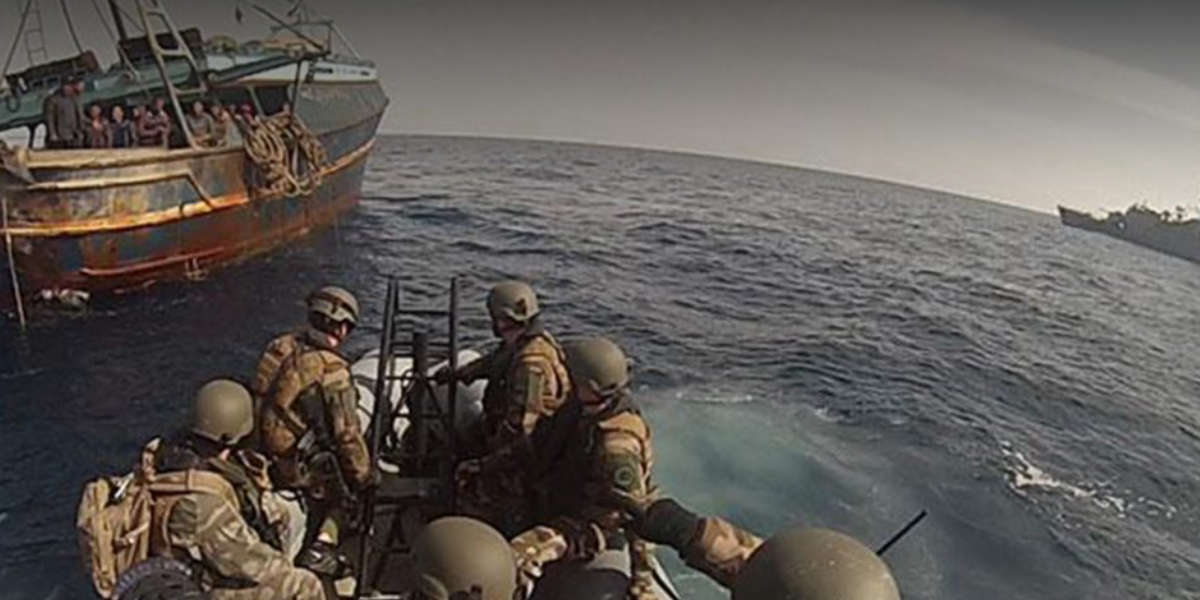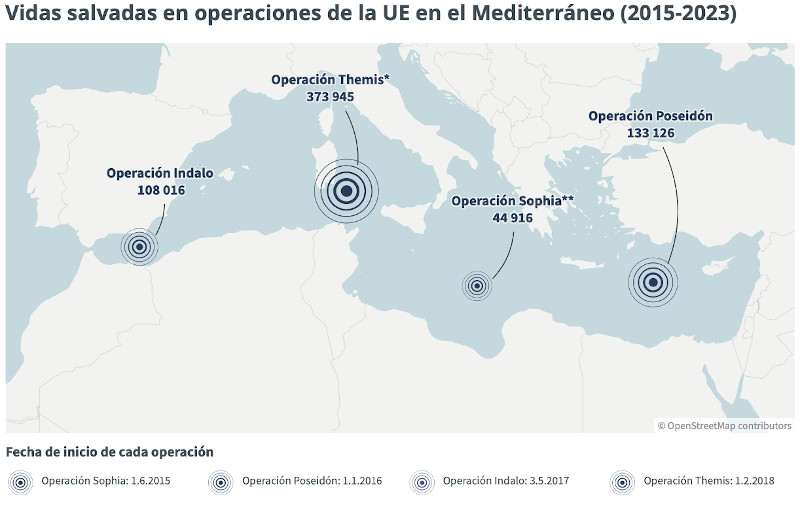In the picture
Operation Sophia [EUNAVFOR MED].
In recent days, the massive and uncontrolled arrival of migrants to the Italian island of Lampedusa has led the Italian government to demand strong action from the EU on the matter, threatening a naval blockade by Italy in case Brussels does not take a decision soon. This puts on the table the possibility of reapplying an initiative such as Operation Sophia, a control initiative in the Mediterranean, launched in 2015 in the face of a similar crisis.
For centuries, the Mediterranean has witnessed countless movements of people across its waters. These transits, often from the African continent to old Europe, bring with them great challenges, especially for those forced to cross in a 10-meter barge that can barely stay afloat with 40 people on board.
The recent arrival of thousands of migrants in Lampedusa from Africa has prompted a strong reaction from the Italian Prime Minister, Georgia Meloni, whose statements Meloni for many put back on the table Operation Sophia and the possibility of re-establishing a similar initiative to stem the waves of migrants.
It is worthwhile, therefore, to briefly review the history of Operation Sophia, along with some basic notions of what a naval blockade entails, in order to defend the need or not to reestablish Operation Sophia to deal with the current status in the Mediterranean.
Operation Sophia
The problem of maritime immigration has been one of the most serious headaches for the European Union since its origins, especially for those countries that 'hang' from the continent closest to Africa: Spain, Italy and Greece.
To try to mitigate the effects of these mobilizations, identical to the most recent one in Lampedusa, the EU decided to establish in 2015 the so-called Operation Sophia (EU Naval Force Mediterranean or EUNAVFORMED). With it, Brussels sought to strengthen its capabilities to identify and capture all those vessels suspected of carrying illegal immigrants or traffickers. Its final name (the official one was EUNAVFOR MED) was coined by Josep Borrell's predecessor, EU High Representative for Security Policy, Federica Morgherini, who in her visit to the operation's headquarters in Rome declared:
"I would like to suggest to Member States that we change the name of the Operation: instead of calling it EUNAVFOR MED, I propose the name Sophia. To honor the lives of the people we are saving, the lives of the people we want to protect, and to send the message to the rest of the world that the fight against illegal immigration and human trafficking networks is a way to protect human life."
The operation began that same year, planned with a structure in four distinct phases. The first focused on maritime surveillance along the illegal trafficking networks to Europe. The second focused on the search and dispersal of all suspicious vessels. The third, to seize these vessels and take legal action against the traffickers caught. And the last one, the withdrawal of forces and the end of the operation. The first two phases were carried out, but the third phase never took place.
During its development, countries such as Belgium, France, Germany, Italy, Ireland, Holland, Slovenia, Spain and the United Kingdom (at the time, still a member of the Union) were involved partnership . A joint multinational effort, of even greater caliber than that deployed with the still active Operation Atalanta on the coasts of the Horn of Africa to fight piracy, in which the aforementioned nations contributed with ships and aircraft, the latter mainly for maritime patrol. Spain was, together with Italy, the third country that deployed the most ships, after Germany and France, sending the six frigates of the class Santa María (F-80), the patrol vessel Rayo, and the combat supply ship (BAC) Cantabria.
During the operation, which spanned five years, tens of thousands of migrants were rescued from the sea. In 2016 alone, after a year of activity, allied vessels had rescued more than 13,000 people, prompting the EU's committee to extend its duration. When it officially ended in 2020, having rescued more than 44,000 people, the EU turned its attention to the UN-imposed embargo on Libya, but movements of people have returned to levels not seen for years, thus demanding a robust response, and putting the option of reinstating Operation Sophia back on the table.


